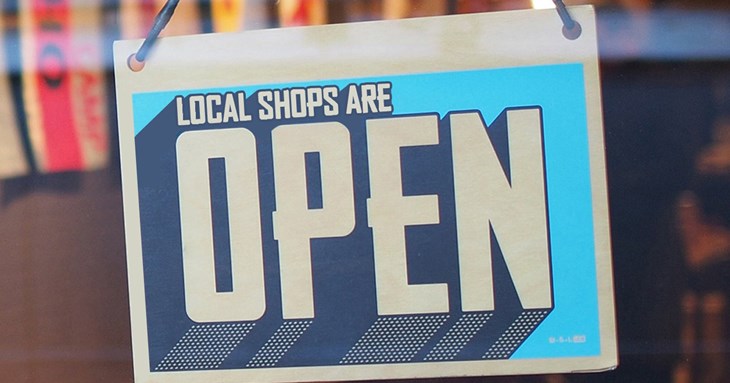Supporting local, independent businesses is good for the planet. But how?
Published: 5 May 2022

In his regular feature, Denis the Dustcart talks about how supporting local, independent businesses is good for the planet.
You can follow Denis on his Facebook page to keep up with information about Recycling issues.
I am generally wary of mass-produced products designed to appeal to people who want to reduce their plastic footprint.
When companies promoting the eco credentials of their products refer to the widely recycled plastic items they are attempting to replace as ‘landfill’ items, I become more than a little suspicious that they are simply trying to take financial advantage of people’s best intentions.
We all know (don’t we?) that refilling is the best way to go: taking a big bottle or container along to a local refill shop and leaving with a fresh load of washing-up liquid, detergent, fabric softener, etc., minus any new plastic packaging, then decanting them into smaller bottles at home.
Good-quality plastic is designed to be durable. We might make a washing-up bottle last several years through refilling.
The problem is that we, as a society, keep buying so many new plastic bottles.
Even if we recycle them every time, we’re still devoting a lot of energy and resources to getting those products remade. Recycling is essential in today’s society, but it’s not perfect.
Refilling isn’t always the perfect solution, either. It becomes a problem when the packet we use to refill our container is just as or more harmful than buying a new container.
Remember those milk pouches sold in supermarkets a few years ago? Touted as using less plastic than bottles. You had to use a special jug with a spike in the bottom to pierce the plastic pouch, and then the pouch usually had to go into the rubbish bin because it wasn’t widely recycled. And local authorities lost out on the income they would have generated from recycling the HDPE milk bottle, which is about the most recyclable and valuable plastic on the market. And what happened to all those spiked jugs?
Some companies operate a return scheme for certain liquid products, whereby you can send their refill packet back to them for recycling after you’ve refilled your own small bottles at home. This sounds good, but it really depends on what the packet can be recycled into – and is using a remotely recyclable single-use packet delivered to our door preferable in any case to visiting a local refill shop with our own big bottles to fill with liquid products?
Consider the issue of transport. The environmental impact of delivering smaller quantities of a product to individual households (albeit as part of a larger regional delivery) and then receiving them back by mail won’t be inconsiderable, but it’s worth asking ourselves how this might compare with the impact of individuals making special car journeys to refill a small number of packets in a shop.
These are questions that require a larger study to answer than I can undertake, however it isn’t exaggerating to say that how we buy something often has a proportionally bigger impact on our carbon footprint than what we buy. If you’re taking the car then it’s best to make your trip to the refill shop a part of a longer journey – a day out or a general shop in town. ‘Transportation’ is about more than shipping things across vast distances.
The wonderful thing about refill shops, though, is that they are almost invariably independents, owned by local people. Shopping at these places helps to keep money in the local community. The more independent shops there are locally, the more the community spends locally; the greater the local economy, the greater the community infrastructure; the more self-reliant that community becomes, the less it contributes to harmful global consumerism.
Exeter is blessed with many wonderful independent shops, cafes, restaurants and other establishments. This Sunday (8th May) sees the return of the Fore Street Flea, where the city’s ‘independent West Quarter’ is given over to a celebration of local businesses and sellers. Head down between 12noon and 4pm to experience the buzz.
Life is so full-on for many of us that taking time out to visit and support a local business may seem like time we can’t afford to spend, physically or mentally – but it is simply one of the best things we can do to help bring about a slower, more manageable and enjoyable pace of life in our society.
And that is exactly what our planet – our home – needs of us.

